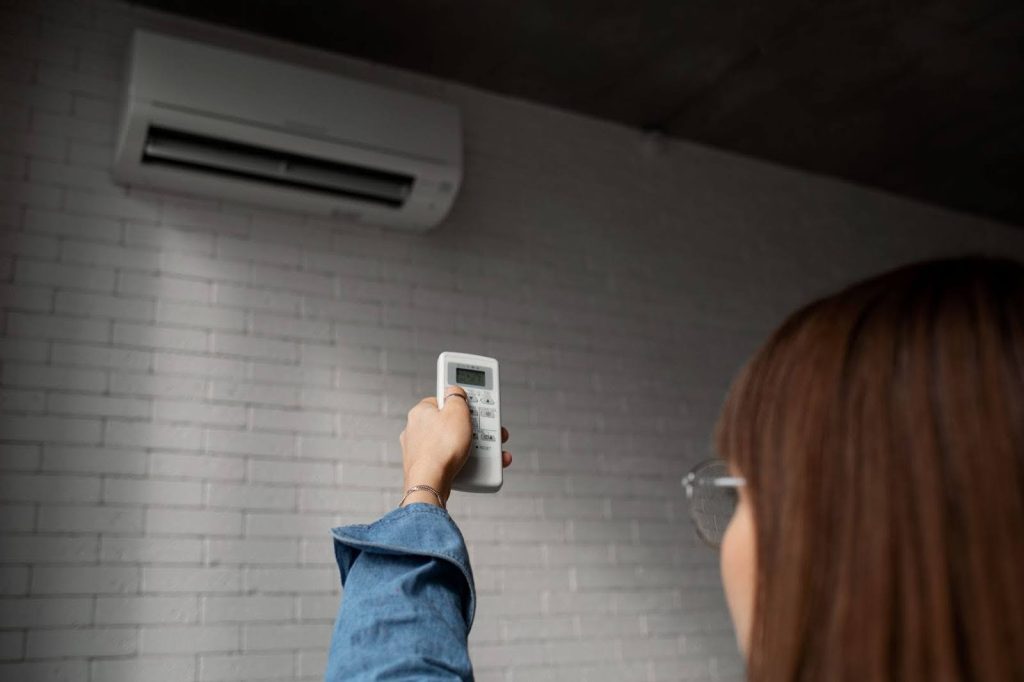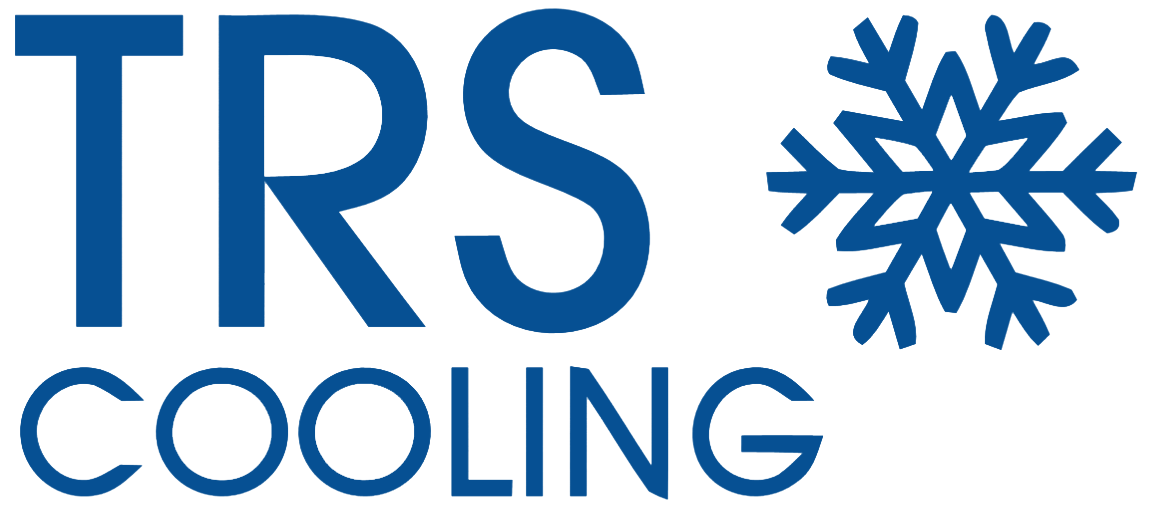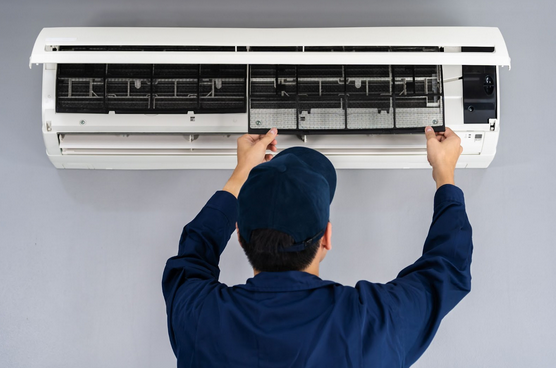Understanding your air conditioning unit’s most common problems doesn’t have to be a stress.
Key Takeaways

- If your air conditioning unit won’t switch on, check the mains power connection.
- Clean or replace clogged air filters to stop your AC from running constantly.
- A professional should fix refrigerant leaks and low levels to prevent damage and ensure effective cooling.
- Thermostats and sensors are vital; change batteries and have regular checks to avoid failures.
- Check the unit drains promptly to prevent water leakage and damage.
Understanding How Air Conditioning Works
Moving from common issues to how things operate, an air conditioning system manages the heat inside your home by moving warm air outside and replacing it with cool air. The process starts when you set the thermostat to a cooler setting.
As you do this, electricity powers the compressor in the outdoor unit. This compressor squeezes refrigerant, turning it into a high-pressure gas.
Next comes cooling down this gas; it moves through coils in the condenser where fans blow away the heat. Now in liquid form, the refrigerant travels indoors to meet up with the evaporator coil.
Here’s where the magic happens – as warm indoor air blows over these cold coils via fans, heat exchange takes place. The heat from the air transfers to the refrigerant which gets sent back outside and releases into the open air; meanwhile, coolness remains behind chilling your house down! Moisture from humid indoor air also gets drawn out during this stage – improving your indoor air quality dramatically by reducing humidity levels.
- Air Conditioning Not Turning On or Running Constantly
Now that you know how air conditioning systems function, let’s look into a common issue where an air conditioner won’t turn on or is running non-stop. If your unit doesn’t start at all, check the circuit breaker first.
It may have tripped, cutting off power to the AC unit. Simply resetting it can solve the problem.

Thermostat or remote control issues could also be to blame; make sure it has fresh batteries and is set correctly.
A constantly running AC might mean your air filters are clogged. Air can’t flow properly if they’re dirty, so the system keeps working overtime to cool your home. Clean or replace them regularly to prevent this issue.
The problem could also stem from faulty compressor or fan motors which cause inefficiency in cooling cycles leading to continuous operation. For any of these more complex concerns, contact us and we’ll spot what’s wrong and get your AC back in good shape quickly.
- Air Conditioner Making Noise
Air conditioning can make different sounds, depending on the problem. There are many reasons why an air conditioning might make different noises.
For example, a hissing sound could mean there’s a refrigerant leak. Clicking sounds when turning the AC on or off may indicate a relay problem. Thumping, rattling, or banging noises could mean there’s an issue with the blower or motor assembly.
A screeching noise might indicate a problem with the compressor or fan motor. Finally, a buzzing sound may indicate faulty electrical components or assembly.
- Issues with Refrigerant Leak or Low Levels
Refrigerants are the lifeblood of air conditioning units. It absorbs heat from your home and cools the air. Low refrigerant makes a unit work harder, leading to high energy consumption and less effective cooling.
If you notice uneven coolness or your system is constantly running, it may be due to low refrigerant levels.
Cracks in the AC system can cause refrigerants to leak out. This might freeze evaporator coils and damage the compressor, resulting in costly damage. Professional checks help spot leaks early so they can fix them quickly.
Spotting frost on the pipes outside could mean there’s a leak or low levels of refrigerant inside your AC system.
- Problems with the Remote Controls or Sensor
The Remote control and sensors are key to controlling your AC. They tell the system when to turn on and off. If they break, your air conditioning unit might not start or could run non-stop. Check if the remote control batteries need changing first; this can solve some issues quickly.
Sensors measure the air temperature in your home. If a sensor fails, it may cause the AC to blow warm air instead of cool. Be sure to have them checked during regular maintenance visits by an HVAC technician.
This helps avoid sudden failures.
Moving on from remote controls and sensors, we must also keep an eye out for drainage problems that can lead to water leaks around the unit.
- Drainage Problems and Water Leaks
Clogged drain lines in an air conditioner can cause trouble. Water may not flow right, leading to mould and bad smells. Keep your AC clean to avoid this. Make sure you check it often too.
Fixing a leaky AC unit needs quick action. A cracked drip tray, fault condensate pump or blocked drain could be the problem. Call for help if you spot any leaks. Deal with drainage issues fast to stop bigger damage and keep costs down.
Your AC will work better and last longer if you sort out these problems quickly.
Conclusion
Air conditioning troubles can leave you hot and bothered. Start by tackling the most common issues, like an AC not turning on or making noise. Check your unit for refrigerant leaks, sensor problems, and clogged drains.
Remember to clean air filters regularly and book in a yearly maintenance visit to keep your system running smoothly. Trust a certified HVAC expert to handle complex fixes safely and effectively. Keep cool by maintaining your AC properly – it’s simpler than you think!














